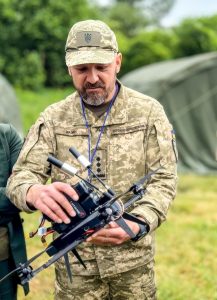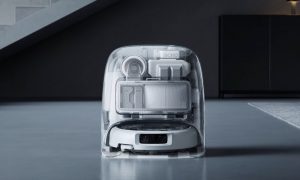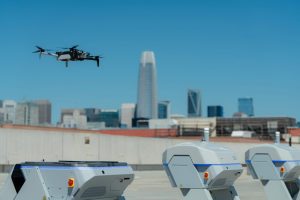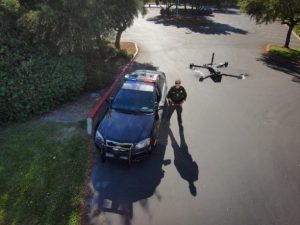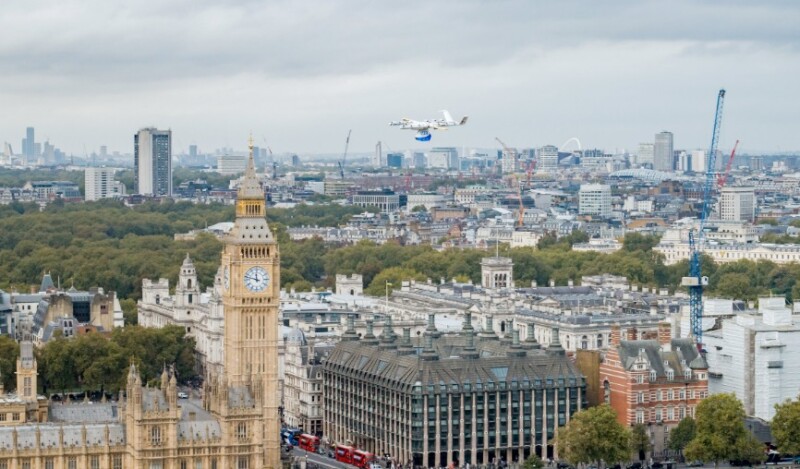Apian Expands NHS Drone Delivery in London: A Pioneering Shift in Medical Logistics
Apian, a trailblazing healthcare logistics startup in the UK, is revolutionizing how essential medical supplies and samples are transported across London’s hospitals. Its recent expansion of the NHS drone delivery network not only places London at the forefront of medical drone logistics in Europe but also serves as a model for smart, sustainable healthcare on a global scale. This article explores Apian’s initiative, the transformative power of technology in patient care, and why these advancements are a source of excitement for healthcare professionals, patients, and forward-thinking businesses alike.
How Drones Are Transforming London’s Healthcare Logistics
Picture a bustling morning at Guy’s and St Thomas’ Hospital, where a surgical patient urgently requires blood analysis to assess readiness for a complicated procedure. Traditionally, a courier would navigate London’s heavy traffic, wasting crucial time. Now, thanks to Apian’s drones, the sample swiftly reaches the Synlab pathology center in Blackfriars, often slashing delivery times significantly.
Milestones in the Expansion
- Industry Leading Partnerships: Apian launched the NHS drone delivery service at Guy’s and St Thomas’ NHS Foundation Trust, collaborating with Wing, a Google affiliate. The initial six-month pilot began in October 2024, focusing on urgent blood samples for patients with bleeding disorders or transplant needs.
- Growing Success: Impressive delivery of over 5,000 patient samples prompted the Civil Aviation Authority to extend airspace permission through October 2025.
- New Operator Collaboration: Matternet, a global urban drone delivery leader from Silicon Valley, has joined Apian’s efforts, enhancing London’s system with advanced drone technology and global best practices.
- Expanding Routes and Hubs: The service is broadening to cover more NHS pathology corridors, linking central hubs like Synlab Blackfriars, which processes millions of tests monthly, leading to significant system-wide enhancements.
Innovative Logistics Beyond Just Drones
While drones address the aerial challenge, Apian’s ambition spans the entire logistics chain, including the intricate “final metre” within hospitals.
- Autonomous Ground Robots: At Great Ormond Street Hospital, Apian is testing four-legged robots (akin to Boston Dynamics’ Spot) that take over once a drone lands, delivering samples or medication directly to clinical teams, enhancing efficiency by freeing up medical staff for patient care.
- Seamless Operations: By coordinating drones and land robots, Apian aims to make logistics “invisible,” allowing hospital staff to avoid waiting for critical samples.
“We’re building intelligent infrastructure that quietly transforms care. Our new partner Matternet brings choice and scale, helping us create logistics that work invisibly in the background and freeing up clinical teams to focus on the patients who need it most.” — Alexander Trewby, Apian CEO
Advantages for Patients, Staff, and the Environment
- Quick and Predictable Deliveries: Drone flights operate unaffected by traffic congestion or tube strikes. They ensure more timely deliveries, enhancing patient outcomes by providing faster results and treatments.
- Improved Staff Efficiency: Automating deliveries allows clinical staff to concentrate more on patient care rather than logistical tasks.
- Environmental Sustainability: Electric drones significantly reduce CO2 emissions compared to traditional courier vehicles, aiding the NHS in achieving its environmental goals.
- Proof in Real-World Trials: The pilot project witnessed up to 10 drone flights daily, paving the way for broader implementation.
Real-Life Impact: Accelerating Time-Critical Surgeries
During the first half-year of the trial at Guy’s and St Thomas’, drones facilitated the fast delivery of urgent blood samples and pathology items for high-risk surgical patients. The reduced delivery time enabled quicker clinical decision-making, shortened patient waits, and allowed for earlier discharges.
Ensuring Safety and Compliance
This initiative is meticulously coordinated with the Civil Aviation Authority (CAA) to adhere to strict airspace and safety regulations, alongside NATS, the UK’s air traffic management authority, which ensures safe airspace integration. The system prioritizes patient confidentiality and safety, with drones operating only between NHS facilities and during daylight hours.
Technology in Use: What’s Being Delivered?
- Critical Blood Samples: Essential for patients with bleeding issues or undergoing transplants.
- Vital Pathology Specimens: Items needing rapid analysis.
- Potential Expansion: Future plans include transporting medications, tissue samples, or small medical devices.
Currently, services remain hospital-based, with no home deliveries planned—your pizza delivery remains drone-free, for now.
Future Legislative and Trend Outlook
- Next Steps: By 2026, new UK regulations could permit “beyond visual line of sight” (BVLOS) flights, enabling drones to serve even remote areas, facilitating rapid deliveries to hard-to-reach locations or crisis situations.
- Leading in Europe: London now boasts the continent’s most advanced urban medical drone network.
Strategizing the Future of NHS Logistics
- Incorporating More NHS Partners: London hospitals and NHS Trusts are being considered for further integration.
- Scaling Autonomous Solutions: As drones and ground robots become the norm, expect NHS supply chains to operate like a futuristic city.
- Patient-Focused Service: This tech supports the NHS in delivering fast, reliable, and accessible care to all.
Key People Behind the Innovation
Apian’s founders, blending experience as former NHS doctors and Google engineers, view themselves as infrastructure pioneers for future healthcare. Their goal is to ensure logistics are so seamless and effective that they go unnoticed, effectively connecting with local communities, including residents, patients, and NHS staff for feedback and integration.
Guidance for Healthcare Facilities
- Start Small, Scale Up: Pilot projects such as Guy’s and St Thomas’ demonstrate early successes, facilitating quick progression.
- Concentrate on the Final Step: Effective air-to-ground transfer is crucial for eliminating bottlenecks.
- Engage with Regulators Early: Close cooperation with CAA and NATS is vital for maintaining safety and public trust.
- Promote Sustainability: Reducing CO2 emissions aligns with modern environmental responsibilities and cost efficiencies.
- Continuous Improvement: Regular consultations with staff and patients help refine the system.
Looking Ahead: Transforming Healthcare Logistics
With its expanded NHS drone delivery network, Apian is discretely transforming London’s medical logistics. The true marvel lies not just in technology like drones and robots, but in how these innovations relieve precious human resources, enhance patient care, and enable the NHS to achieve more with less. For those involved in healthcare management or logistics, London’s unfolding drone story offers a glimpse into the future, inviting replication in other cities.
As the saying goes, “In the future, your test results may reach the lab before you’ve even sat back down in the waiting room.”
For those interested in exploring drone delivery or autonomous logistics for their healthcare network, Apian’s team is available for consultation. Stay informed on how these changes might soon impact your community’s healthcare fabric.
London has welcomed the drones, ushering in a new era for healthcare.







